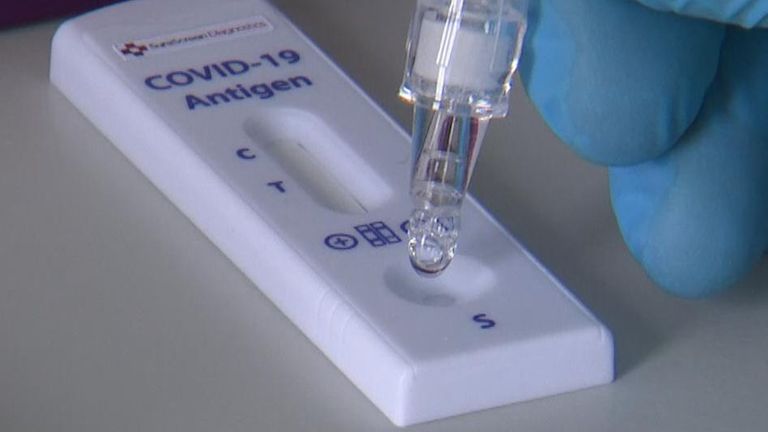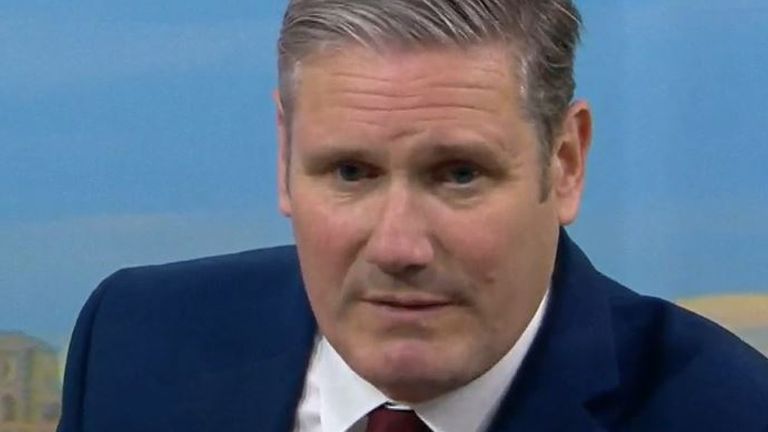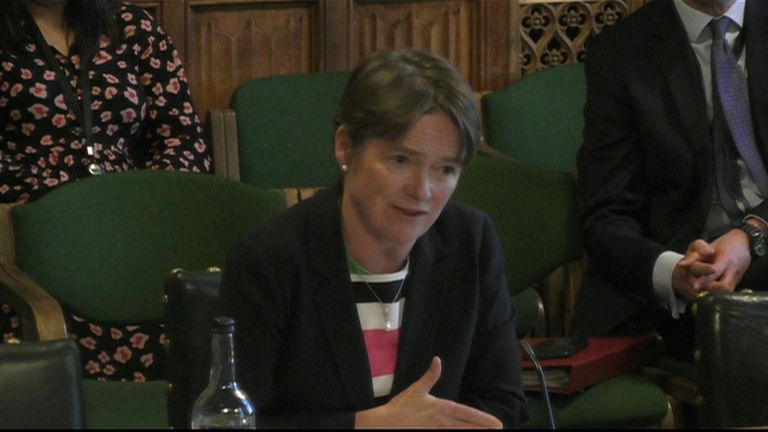A COVID test that can give results in just 15 minutes is being heralded as “game changing” by the company that makes it.
The test, which costs under £20, is being mass produced by its Derbyshire-based company SureScreen with the aim to deliver a million a week by November.
It says that quick, cheap antigen tests used frequently will mean that “more screening can be done and better decisions can be made”.
Rapid, regular testing of millions of people a day is part of the government’s so called ‘Moonshot’ strategy – though some scientists are sceptical about such a plan.
SureScreen is a diagnostic company that already supplies its COVID-19 antibody test to 53 countries around the world and its clients include the French and Belgian governments.
Its new antigen test is a handheld cassette type device which works in a similar way to a pregnancy test.
A swab is taken and added to the membrane within the cassette.
If the virus is present it will react with the chemical reagents in the test and show two lines for positive, one for negative.
Unlike PCR tests which the NHS is currently using, the test does not amplify the virus in order to detect it.
In practice this means it may not detect the smallest traces of the virus or the remnants of it in someone’s system in the way PCR tests do and it may not detect the virus at the very start or very end of infection.
But some argue that if such tests are used regularly this isn’t necessary.
“The word game changer has been thrown around quite a lot but we do believe that having a rapid antigen test is the game changer” says David Campbell, Director of SureScreen.
“It would have an enormous impact in terms of the community in terms of getting businesses back to work, having a test that’s readily available that can be used very quickly that’s easy to use and cost effective it means that more screening can be done.”
“We can start helping industries that are struggling.”
The government wants to be testing millions of people a day by next year including people who don’t have symptoms.
The so-called ‘Moonshot’ strategy on testing aims to allow non infected people to live ‘normally’ confident in the knowledge they won’t be infecting anyone.
The government also recently announced trials of a 20-minute turn around test in Hampshire and a saliva test in Southampton.
When questioned in the House of Commons yesterday on whether he would consider the SureScreen tests, Health Secretary Matt Hancock said he would be “happy to talk “to the company’s local MP about the technology.
But many scientists are sceptical about lower sensitivity fast tests and the Moonshot plans more broadly.
They argue such tests often don’t detect people with infectious COVID and that the ‘Moonshot’ plan ignores the downsides of mass testing
Professor John Deeks, professor of biostatistics at Birmingham University has questioned the scientific grounding to the plans in an published in the British Medical Journal today
“In any screening programme, we’re very careful to make sure we do more good than harm,” Prof Deeks – who leads the Biostatistics, Evidence Synthesis and Test Evaluation Research Group at the Institute of Applied Health Research – told Sky News.
“Whenever we screen we actually give wrong results to people who don’t have the disease.
:: Subscribe to the Daily podcast on Apple Podcasts, Google Podcasts, Spotify, Spreaker
“And if we do a mass screening of the whole population for any disease, we will end up giving a large number of people wrong results”
“If a test makes a false positive error… in only 1% of people, if we use it in the whole population every week, which is what the ‘Moonshot’ plans propose, that’s 600,000, people who will get a positive result who don’t have COVID.
“And that’s an awful lot. And that will make an impact to them and to their contacts. And it will actually make an economic impact on the country.”
Professor Deeks and others argue that what is really needed is a test for infectiousness which does not at present exist.
In the meantime many small companies are racing to develop solutions to fit the gap.



